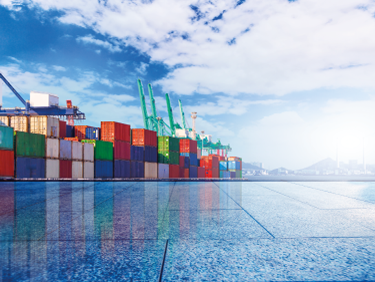-
Is The Supply Chain Crisis Impacting Capital Markets
Banks and investors are monitoring current supply chain imbalances closely. Capital markets are definitely impacted when the global supply chain experiences turbulence. Therefore, Capital Market suppliers like banks and investors in the Middle East and Egypt are paying close attention to how certain circumstances are impacting the global supply chain and capital markets.
As the world comes out of a global pandemic, we are entering into a Russia/Ukraine war that further compounds what was already a supply chain crisis. The doubling of these two worldwide occurrences has created a supply chain imbalance that hasn’t been previously observed. HC Securities & Investments is taking this moment to carefully navigate Capital Markets with our investors and clients’ best interests in mind. In this article, we will discuss exactly what is causing the supply chain crisis. As well as how Capital Markets are being impacted by it.
-
Global Factors & Geopolitical Issues Impacting The Supply Chain Crisis & Capital Markets
Just when COVID restrictions have begun to clear up, geopolitical conflicts like the Russia/Ukraine war offer new limitations and have caused some serious supply chain crises. Here are a few reasons why.
-
Port Congestion As China Increases Output
Chinese ports have been working in overdrive to first take in as many returning empty shipping containers as possible. As Chinese manufacturers ramp up production to meet increased consumer demand, the shortage of containers and surplus of goods has created massive congestion that is impacting Middle Eastern & Egyptian supply chains. Because the global supply chain and capital markets are inextricably linked, we are seeing a residual knock-on effect from port congestion that stimulates market volatility.
-
Spillover Impacts Global Ports Already Congested From Covid Restrictions
The Russia/Ukraine war has been raging with no sign of surrender from either side. Grain & fuel shortages around the globe are only one of the spillover effects the Middle East & Egypt are facing. Additionally, global ports where cargo has traditionally been shipped are facing extreme congestion as they try to compensate for other ports that have been closed or shut down due to the Russia/Ukraine conflict. This congestion only further bolsters supply chain imbalances that skyrocket consumer demand, and consequently inflation.
-
Russian Airspace Restrictions Delays Air Freight Transportation
Air transportation, especially along the Asia-Europe route has been severely altered. While air freight from China to the Middle East can avoid Russian and Ukrainian air space. The overall limitations and additional restrictions have created an environment where air freight liners are forced to prioritize certain, more important goods over others, causing shortages of goods in some areas.
-
Global Shortage of Truck Drivers Still Looms
Manufacturers, ports, and logistics firms were already being pushed to the edge throughout covid. This new Russia/Ukraine conflict has added an extra layer of pressure that has caused many truck drivers and port machine operators to simply quit. A global shortage of truck drivers everywhere has to be factored into the cost of goods now.
-
Congested Overland Rail Freight From China
Ports and rails are being pushed to the limit to keep up with consumer demand. This push to deliver has even congested overland rail freight routes coming out of China. Everyone destined for Northern European regions now have to avoid Russian rails and ship through Asia. The overall burden placed on rail operators is enormous.
-
Banks & Investors See Correlation Between Supply Chain Issues & Inflation
As many of the global factors and geopolitical issues listed above stimulate supply chain issues, inflation seems to tag along as an undesirable consequence. Foundational supply & demand principles dictate as consumer demand increases, manufacturers produce increased inventory to meet the demand. This in turn stimulates rises in costs, and inflation as customers are willing to pay increased costs for the products they demand.
Investors in the Middle East and Egypt understand this all too well and have taken a position within inflation-resistant markets. Firms like HC Securities & Investments is helping investors manage supply chain imbalances and inflation by shifting investor portfolios to more stable investments. Research shows that industries like healthcare and information technology have been somewhat resistant to the supply chain crisis and offer better stability for banks and investors.


